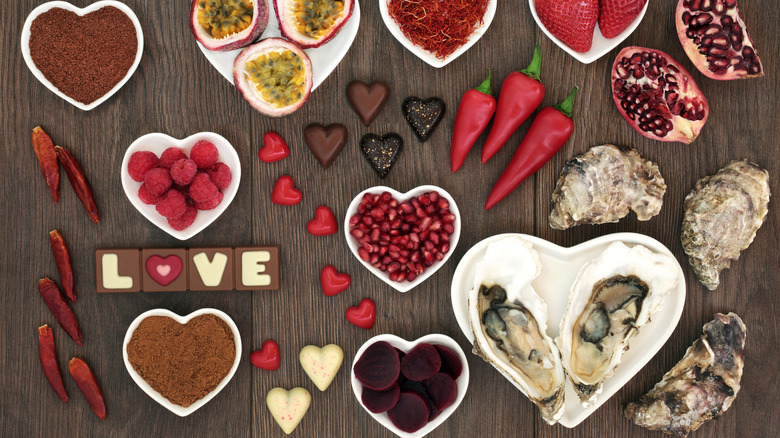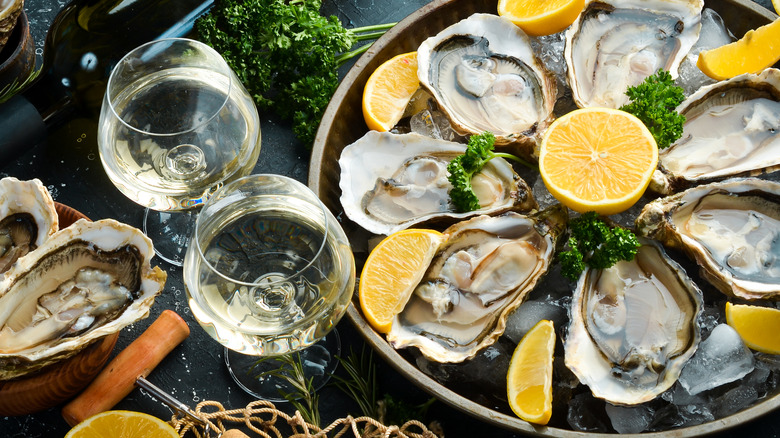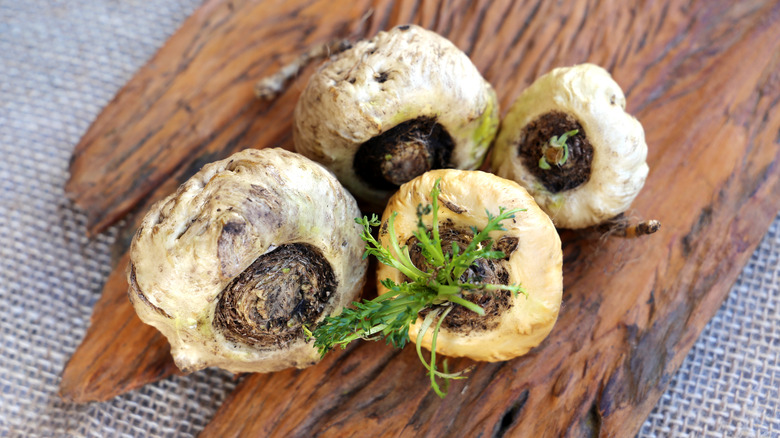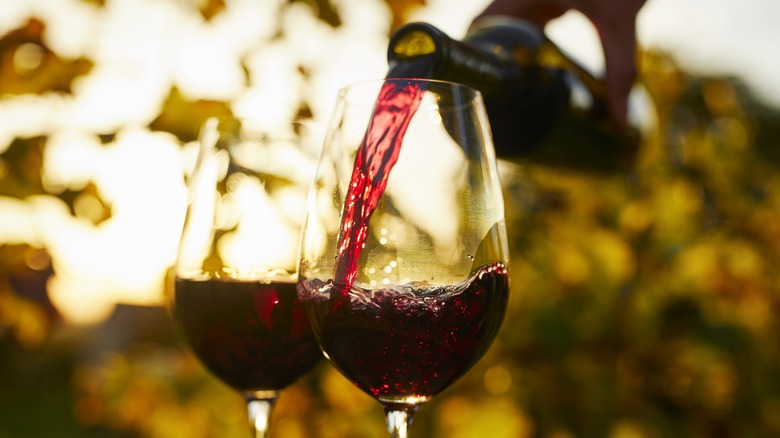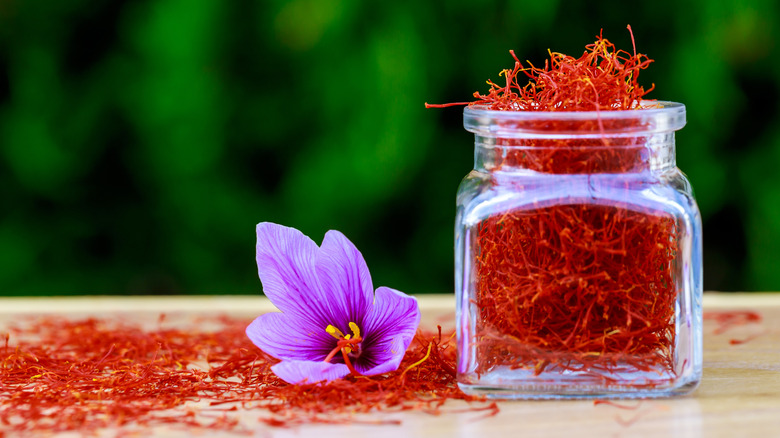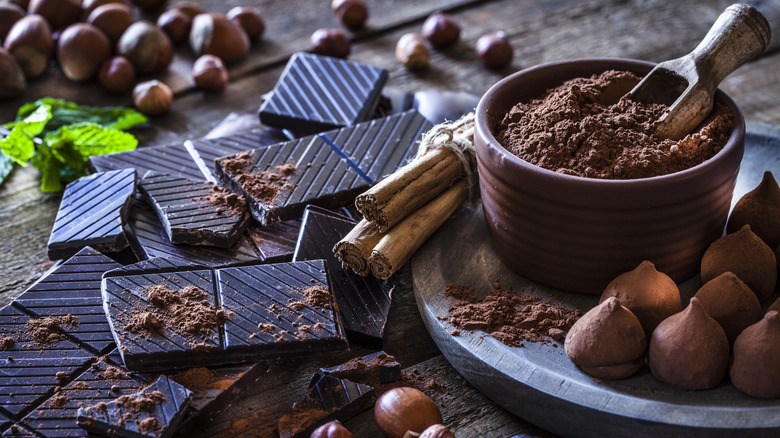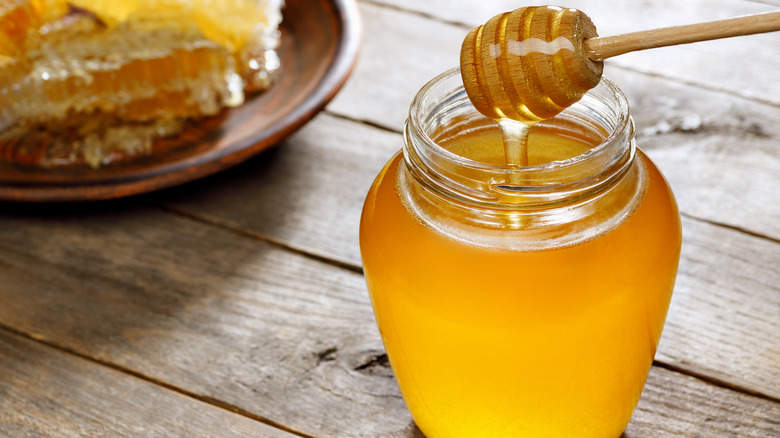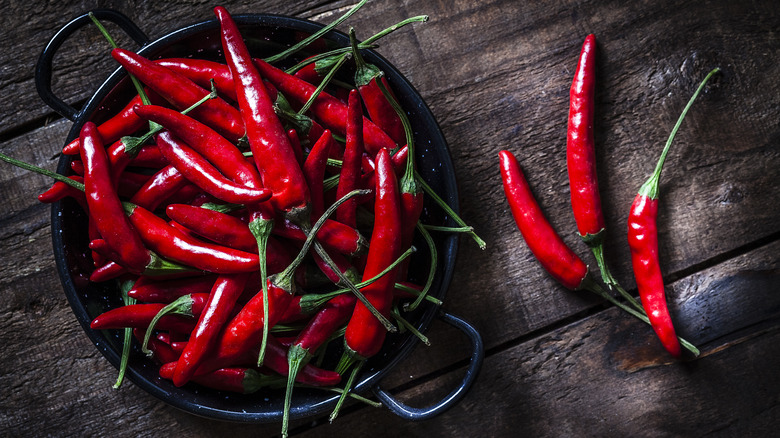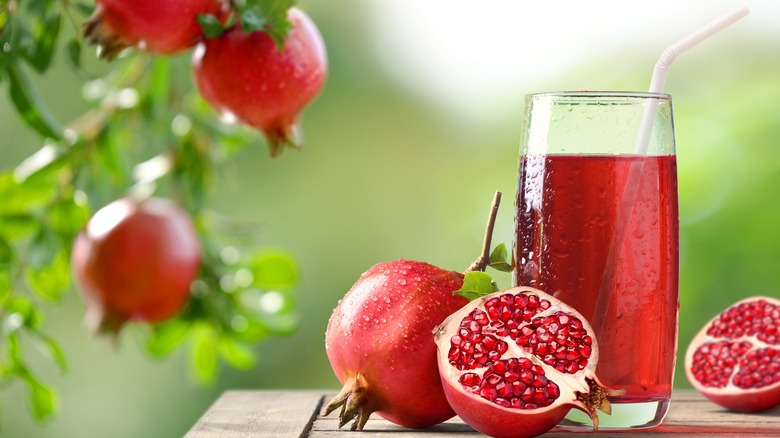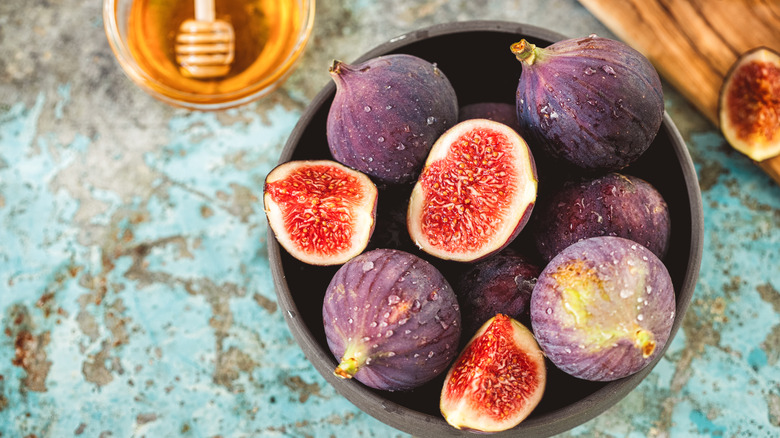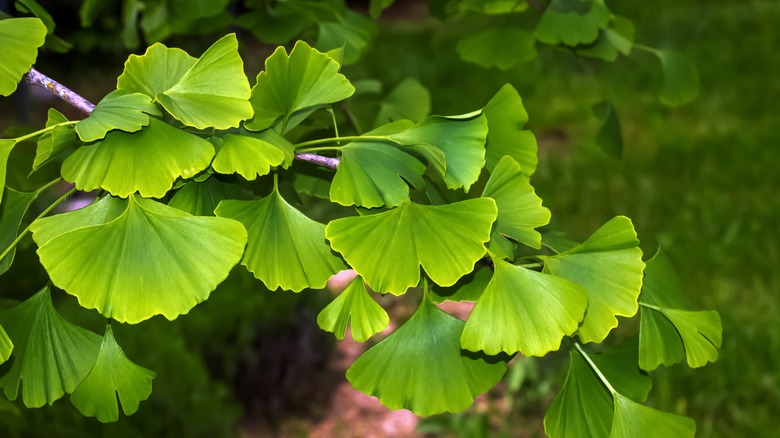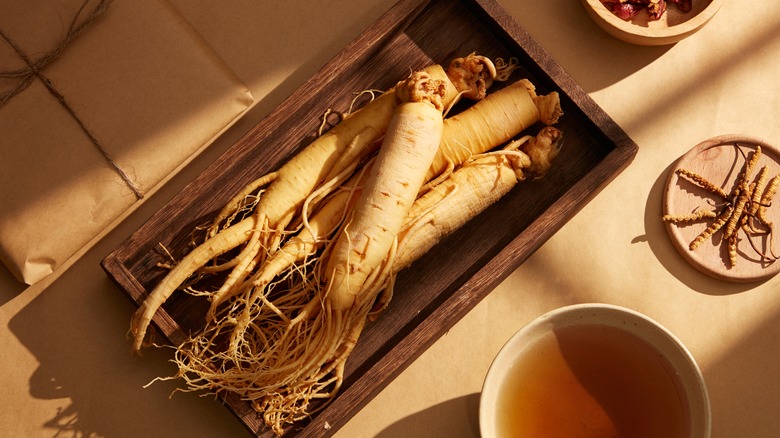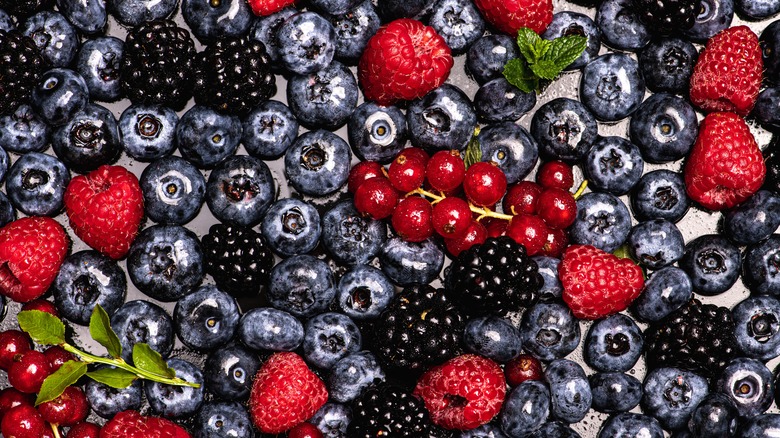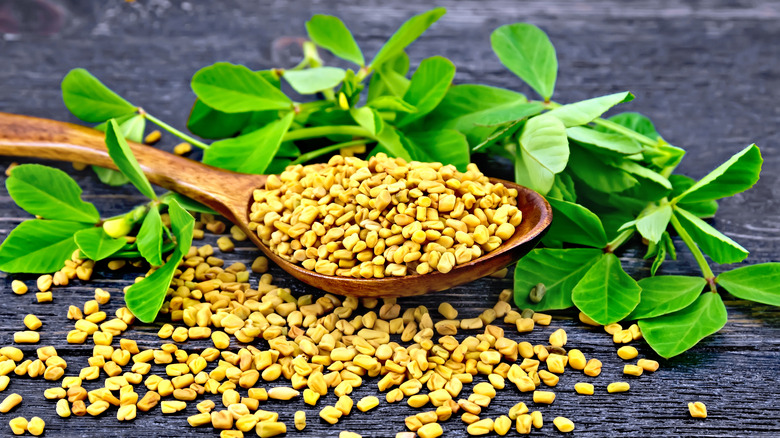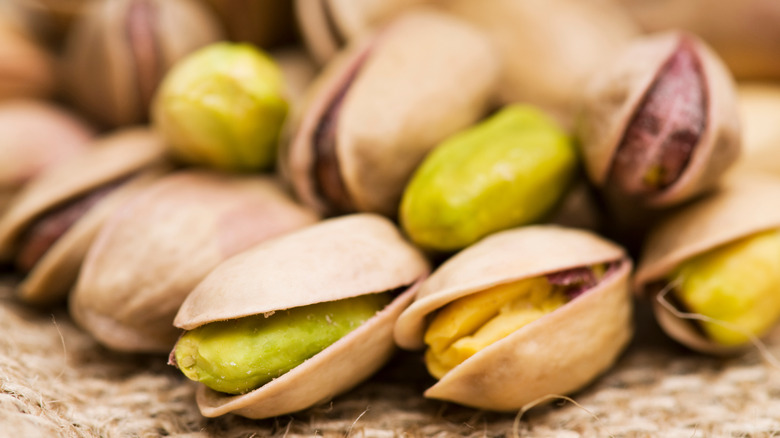A Guide To Real Vs Fake Aphrodisiacs
There are a lot of foods that claim to act as aphrodisiacs, but does the medical science really back them up? The short answer is yes and no. Some are the real deal, backed up by a litany of peer-reviewed studies, while others are downright fake or even harmful. Because wading through the endless jargon and dubious claims can be difficult, and sometimes just plain confusing, we at Chowhound have taken it upon ourselves to scour the medical journals, check all the studies, and compile this handy guide to real versus fake aphrodisiacs.
So, what exactly is an aphrodisiac? Taking their name from Aphrodite, the Greek goddess of love and sexuality, aphrodisiacs are any foods, drugs, or supplements that claim to increase sexual desire, potency, pleasure, or performance. Their usage and history go back thousands of years and pervade nearly every recorded culture in history, giving rise to a plethora of "traditional" erotic enhancers. As for how effective many of these traditional aphrodisiacs really are at setting or conjuring the mood, that depends on more than a few factors, and in particular, the substance in question.
Oysters
Over the years, oysters have become one of the foods so commonly touted as an effective aphrodisiac that it's become something of a stereotype, seen in everything from pop culture references to dubiously-sourced dating advice. But, why the connection between raw oysters and sex drive? For one, there's the fact that foods resembling genitalia (such as oysters, figs, asparagus, etc.) tend to find themselves slapped with the "aphrodisiac" label whether they deliver the intended results or not. There are also historical grounds for the connection — famed 18th-century adventurer Giacomo Casanova supposedly favored slurping down a few oysters before his carnal encounters.
But what does the science say? Sadly — or fortunately, if you're not a fan of the slimy bivalves — few studies have been done on oysters and whether or not they actually act as an aphrodisiac. And the few studies we do have show that they likely don't have the intended effect. Aside from being a good source of zinc (which could, theoretically, lead to enhanced dopamine production), there aren't really any scientific or medical grounds to gobble up a dozen oysters before your next date night. That being said, the placebo effect can have a powerful effect on the psyche, and it may account for why so many people over the centuries have continued to believe in oysters' aphrodisiacal properties. They work because people believe they will.
Maca
For any who aren't already aware, maca is a starchy root vegetable that is native to the central mountains of Peru and closely related to both turnips and cabbage. It's been cultivated and eaten for the last millennia or two for its purported health benefits, which include treating inflammatory conditions, hormonal imbalances, and (especially) sexual dysfunction. Its use as an aphrodisiac has even earned maca the nickname of "Peruvian Viagra."
Perhaps most importantly, unlike oysters, maca has a considerable amount of scientific evidence to back up its claims. Both animal and human studies have shown a noticeable increase in libido and erectile function when subjects ingested the veggie. And though the research is still in its early stages, another study suggests that maca could be an effective treatment for loss of libido associated with antidepressant use. While the easiest means of consumption might be in supplement form (it makes for a nutritious smoothie additive!) maca has a sweet flavor and is truly delicious when baked or incorporated into other dishes.
Alcohol
Yet another popular would-be aphrodisiac is probably lurking, in one form or another, on your shelf right now. Alcohol has long been touted as an aphrodisiac, but the truth of the matter is a little more complicated than simply downing a glass of your preferred intoxicant and enjoying the results. In fact, alcohol can make you feel more relaxed and lower your inhibitions, which can make it seem as though it's working as an aphrodisiac, but the truth is that it might be doing the exact opposite.
High or excessive alcohol intake has been linked through multiple studies to decreased libido and increased sexual dysfunction in both men and women. On the other hand, there's no lack of medical studies demonstrating that moderate intake of red wine can actually have a positive effect on sexual function, especially in women. So, is alcohol a legitimate aphrodisiac? That largely depends on the amount and type of alcohol you intend to consume. But it's good news for wine aficionados.
Saffron
You're likely already somewhat familiar with saffron, the delicious orange spice that comes from the crocus sativus flower (which also happens to be one of the most expensive spices by weight). Some of the spice's reputed health benefits include enhancing overall mood, aiding in weight loss, and reducing the risk of heart disease. In addition, there is evidence to suggest that saffron may act as an effective aphrodisiac as well.
Several studies have shown that saffron may be a promising ingredient in the treatment of antidepressant-induced sexual dysfunction, both in men and women. In both studies, men and women who regularly consumed saffron showed marked improvement compared to a placebo group. Even so, more studies are required to demonstrate saffron's effectiveness as an aphrodisiac in those whose sexual dysfunction is not caused by antidepressant use. So is saffron a legitimate aphrodisiac? Yes, but the evidence suggests that it's likely to work better in certain groups.
Chocolate
There's certainly no shortage of reasons to indulge in a square (or two, or three) of chocolate now and then. After all, among its numerous health benefits, chocolate (especially the darker varieties with a high cocoa percentage) is packed with antioxidants and minerals that purport to protect against all kinds of ailments, from heart disease to high cholesterol. Because of its superfood status, it's often touted as an aphrodisiac, but does the evidence really back up this claim?
The answer, sadly, is not really. While chocolate does have a confirmed positive effect on overall health, no studies have specifically identified any positive correlation between chocolate consumption and sexual health. On the other hand, studies have shown that consuming chocolate does boost the brain's production of the feel-good chemical serotonin. So even if it doesn't put you in the mood for romance, it might be able to improve your mood in general.
Honey
Honey's aphrodisiacal claims have quite a lengthy history, going back centuries and possibly even giving rise to the English word "honeymoon." Hippocrates, who lived in the fifth and fourth centuries B.C., even promoted the use of honey to increase libido. However, thanks to modern medical science, we now know that many of the claims surrounding honey's more erotic uses are largely false. More studies are needed to fully confirm or debunk these claims, but preliminary research has failed to provide any solid proof that honey is a legitimate aphrodisiac.
Not only that, but some honey-based products that claim to improve sexual functioning are downright toxic. So-called mad honey, a product made from the nectar of plants in the Ericaceae family and marketed as a potent aphrodisiac, is more likely to leave you feeling sick than excited due to the presence of grayanotoxins. So-called "mad honey disease" can cause symptoms such as dizziness, hypotension, and heart problems.
Spicy foods
There's a persistent belief that spicy foods have the ability to act as an aphrodisiac, and it's not too hard to understand the reasoning behind it: after all, spicy foods are already more than capable of getting your tongue all hot and bothered — why not your sex drive too? Proponents of this particular so-called aphrodisiac point to the compound capsaicin, which is what causes peppers to give you a burning sensation upon contact with the skin, as the magic ingredient. Capsaicin works by stimulating nerve endings in the tongue, thus producing the spicy flavor so many of us know and love and leading some to claim that it is capable of stimulating other things too.
Unfortunately, the solution to any bedroom issues you may or may not be experiencing is likely not to be found at the bottom of a spicy bowl of chili or any of these spectacular jalapeno recipes that turn up the heat. Though more research is needed, there are no studies to support the idea that spicy foods can significantly boost your sex drive.
Pomegranate
In the realm of medically proven aphrodisiacs, few foods stand quite as tall as the humble pomegranate. Aside from being a superfruit packed with all kinds of beneficial antioxidants that can aid in fighting conditions such as inflammation and poor blood pressure, pomegranate is an all-around delicious and effective aphrodisiac that benefits sexual health in a myriad of ways.
Various studies have found that pomegranate boosts levels of testosterone (a hormone that is key to maintaining a healthy sex drive in both men and women), is capable of effectively treating erectile dysfunction, and can even improve sperm quality and lower a person's risk of developing prostate cancer. On top of all that, pomegranates and their juice are just plain delicious and easy to incorporate into any meal plan. Whether you're looking to capitalize on the fruit's sexual health benefits or just give your overall health a shot in the arm, you owe it to yourself to give pomegranate a try.
Figs
In case you've been living under a rock, figs are small teardrop-shaped fruit (actually an inverted flower) that are nearly as healthy as they are mouth-wateringly delicious. They also have a lengthy history over the centuries as an aphrodisiac, and modern medical science is starting to realize that ancient proponents may have had a point.
Though more research is needed to understand how figs affect reproductive health in humans, a preliminary study in rats showed promising data for the use of figs or their extracts for erectile dysfunction. Similar research has even suggested that figs may relate to increased sperm count and motility. So are figs a legitimate aphrodisiac? It may be too early to tell for sure, but so far at least, the results are promising. Either way, there are plenty of reasons to incorporate the small summer fruit into your diet, from its powerful antioxidants to the fact that figs are just downright tasty.
Ginkgo biloba
Ginkgo biloba is a tree native to East Asia that has found its way into various international cultures, both as food and as a supplement, largely because of its storied health benefits. It's long been used in traditional Chinese medicine for an array of illnesses, from depression and poor circulation to sexual dysfunction, but the data is largely inconclusive on whether or not ginkgo biloba really does act as an aphrodisiac. And then there's the fact that, due to ginkgo's blood-thinning qualities, its use may not be suitable for anyone already taking medications with a similar effect on the body.
Researchers have been looking into the use of ginkgo to treat sexual dysfunction for decades, with a 2008 study published in the Journal of Marital & Sex Therapy finding that ginkgo extract significantly improved libido for 84% of the study's control group. Even so, other research has had mixed results, with another study from the journal Human Psychopharmacology finding that participants had no significant improvement in symptoms.
Red ginseng
Yet another star of traditional Chinese medicine, red ginseng has been used to treat an assortment of ailments over the years, including heart disease and low energy as well as stress relief. It also has a reputation for effectively treating sexual dysfunction in both men and women, and the science indicates that there might be something to the claims.
More than a few studies have found that red ginseng improved symptoms of erectile dysfunction in participants compared with the results of a placebo group. Furthermore, another study found that red ginseng may be a useful treatment when it comes to treating sexual dysfunction caused by symptoms of menopause. That being said, more studies are still needed to confirm the results of these studies, which some scientists regard with skepticism. Much like ginkgo biloba, red ginseng can cause blood thinning, so be sure to discuss it with your doctor before incorporating these supplements into your diet.
Berries
You likely already know that berries — including blueberries, strawberries, raspberries, and the like — are one of the healthiest things you can eat. Berries are jam-packed with antioxidants, vitamins, and minerals essential to overall health. It's no surprise, then, that berries have been put forward as a possible aphrodisiac. After all, the tiny superfruits are good for just about everything else, so why not for treating sexual dysfunction?
Interestingly, this claim might just be true. Research has found that flavonoids–a component found in many fruits and veggies as well as most berries–are likely linked to lower instances of erectile dysfunction. In fact, one study published in The American Journal of Clinical Nutrition even found that participants who consumed high amounts of flavonoid-rich foods each week were 10% less likely to suffer from erectile dysfunction. In addition, berries and the flavonoids they contain are also linked to better blood flow. Long story short, whether sexual dysfunction is your concern or not, you owe it to your body's health to incorporate more berries into your meals.
Fenugreek
Fenugreek is a plant, technically an herb related to clover, that is cultivated throughout the world for both culinary and health reasons. Its seeds have a sweet maple-esque flavor and are often used to flavor South Asian dishes. Among fenugreek's purported health benefits are the ability to lower blood sugar, soothe menstrual cramps, and support weight loss. The plant and its extracts are also rumored to be an effective aphrodisiac, supposedly treating a number of sexual issues from erectile dysfunction to low libido.
The reasoning for fenugreek's aphrodisiacal reputation is pretty solid — the plant does, in fact, contain compounds that have been found to influence estrogen and testosterone levels in the body. Study participants reported higher libido and more orgasms after receiving treatment with fenugreek extracts, but there could be another reason for the positive results, as researchers have pointed out that other natural compounds in the plant (like its high magnesium and zinc contents) might be behind the results.
Pistachio nuts
Pistachio nuts have been a staple of the Mediterranean diet for thousands of years, and no wonder! The small green nut — often served roasted and salted with or without their shells — is a powerhouse of nutritional value, coming packed with nutrients like protein, fiber, and healthy fats. We have substantial evidence for pistachios' health benefits, which include lowering blood pressure, reducing the risk of heart disease, and (possibly) even treatment of erectile dysfunction.
The number of studies available that specifically look at pistachios' effect on sexual health are relatively few, but those we do have show promising results, demonstrating how the food's positive impact on cholesterol and blood flow can translate into better erections. However, more studies are needed before these encouraging results can be confirmed. Even so, pistachios have so many other general health benefits that they're worth eating on a regular basis, even if their sexual health benefits are just a happy bonus.
